Battle-hardened Yemenis take up cudgels against Israel and its Western backers
By Wesam Bahrani
After the US and Saudi Arabia launched a devastating war on Yemen, the martyred leader of Hezbollah Sayyed Hassan Nasrallah powerfully addressed their flimsy justifications.
"They (Saudis) said: This is the Arabs' war, this is the war of Arabism. A war of Arabs against whom? Against an Arab people? Against pure Arabs,” he said in his speech on April 18, 2015.
“Look at their features, their dialect, their language, their poetry, their literature, their eloquence, their fluency, and look at their dignity, courage, enthusiasm, fatherhood, refusal of injustice, honor, pride, generosity, and benevolence. If the Yemeni people are not Arabs, then who are the Arabs,” he added.
Leader of the Islamic resistance movement in Lebanon, who was martyred in an Israeli airstrike on September 28 over support for Palestine, paid tribute to the great Yemeni civilization.
“Before Islam, they were the civilization of the Arabs. When the Arabian Peninsula and its people did not know how to read or write and were fighting over a water canal or a kidnapped bride, Yemen had a civilization, and Yemen had urbanity,” he noted.
“After Islam, the contribution of the Yemenis to jihad in Islam is well-known and documented in history, attested to by all Muslim lands. Indonesia, the largest Muslim country today—who brought Islam to Indonesia? Yemeni scholars, traders, and preachers.”
He went on to speak about Yemeni tribes – “well-known in genealogy, deeply rooted in history, and present in books, in the science of men, in the science of genealogy, and in the science of tribes.”
“Yemenis do not need certification of their Arab identity or Islam. Rather, I say that those who aggress against the Yemeni people today are the ones who should seek certification of their Islam and Arabism,” said Sayyed Hassan Nasrallah.
“It is shameful. There are people (referring to Persian Gulf Arab Kingdoms) whose lineage is unknown, who want to debate whether Yemenis are Arabs or not and defend their own Arabism."
The speech was a master class on how to understand the dynamics of Yemeni resistance and why the Zionist regime will continue to fail in its delusional suicidal mission to "behead Yemen."
The southern Arabian Peninsula country faced eight years of aggression with "state of the art" American weapons, intelligence, and other logistical support in different forms and from different quarters.
IRGC chief: Yemenis will ultimately emerge victorioushttps://t.co/nrAZ5uTXap
— Press TV 🔻 (@PressTV) December 28, 2024
And during those eight years, nothing was spared. Sanaa International Airport, Hodeidah port, and many other vital infrastructures were blown to pieces.
Despite all this, the very popular Ansarallah-led revolution and its resistance against the American hegemony, which was steering the war alongside other major Western powers emerged victorious.
Now, the Zionist regime wants to have a go at breaking the steadfastness of the government in Sana'a, which enjoys the popular support of people in the Arab country.
Many are asking why the focus has now zoomed on Yemen.
The most despised issue among people in this region is hegemony and imperialism. It is the worst form of humiliation, especially within the Arab world, that the United States and its Zionist proxy are occupying land, in particular, the holy Islamic land.
Occupied Palestine is at the forefront of this struggle.
The path to defeating the source of all insecurity that has seen West Asia plagued by wars and disputes fought alongside sectarian lines is the people themselves.
Building an environment that supports the Palestinian struggle is the key to breaking this ignorance. Governments can't do this alone if the people don't have to share that desire.
When we evaluate individual countries, the problem mostly lies in the rulers themselves, who ban pro-Palestine protests, festivals, conferences, and many other ways to raise awareness.
Until those rulers are toppled.
The exception has been a handful of countries. Iraq, the Islamic Republic of Iran, Lebanon, and, more importantly, Yemen. Yemen, the poorest country in the West Asia region, is a very unique case.
Every Friday, people flood the streets of all major cities across the country rallying in support of Palestine. These gatherings have grown bigger in size amid the genocidal war on Gaza, which has already claimed the lives of more than 45,400 Palestinians, most of them children and women.
On a government level, the Ansarallah-led coalition in Sana'a says attacks by the Zionist regime, the US and Britain will not affect its support for Palestine "no matter what the cost".
Every Thursday, Ansarallah leader Sayyed Abdul-Malik al-Houthi delivers a speech outlining regional developments.
Yemenis chant 'escalation for escalation' in nationwide pro-Gaza rallieshttps://t.co/88icMYtpnl
— Press TV 🔻 (@PressTV) December 27, 2024
This is what Sayyed Nasrallah did in his speeches when he divided them into segments that made it abundantly clear what was happening and what the positions of Hezbollah and the Islamic world should be.
Sayyed al-Houthi has taken over this role. He has filled the void left by the iconic Hezbollah leader.
The Yemeni Armed Forces (YAF) have imposed a ban on Israeli and Israeli-affiliated ships from transiting the Red Sea to dock at Eilat Port as well as those trying to reach other Israeli docks in the Arabian Sea.
The YAF is attacking Tel Aviv, evading missile interceptor systems of CENTCOM and the Zionists with hypersonic ballistic missiles at a much higher rate now, alongside drone attacks.
"In this holy, humanitarian battle and duty, nothing will deter us," Yemeni military spokesman, General Yahya Sara'a, recently vowed. His statements come every time the Yemenis strike.
In essence, Yemen has taken the role of Hezbollah with all the correct ingredients in place to make it a formidable force within the Axis of Resistance against the Israeli-American Axis of Genocide.
The people, government, armed forces, and an inspiring leader all exceeded the expectations of regional onlookers but lived up to Martyr Sayyed Nasrallah's speech in April 2015.
For the Zionists, Yemen is not Lebanon or Gaza. Attacking Sanaa International Airport on a Thursday required warplanes to make a 2,000-kilometer round journey.
On Thursday night, a Yemeni hypersonic missile struck Ben Gurion Airport, the busiest airport in the occupied Palestinian territories, injuring dozens of settlers.
When so many regional and Western powers waged eight years of war on Yemen and lost, the Zionist regime is looking at more than double that time to try and have some impact on Yemeni resistance.
Furthermore, US military bases scattered across the region are within range of Yemeni missiles. This is something Ansarullah officials have spoken about.
More importantly (apart from the Pentagon's confusion about the speed of Yemeni missiles), when the time is ripe, Sana’a will close the Bab al-Mandab Strait.
That will be a welcome gift for US President-elect Donald Trump as oil prices spike to $200, $300, maybe $500 per barrel.
"We will paralyze them (Yemen) until they learn from what Hamas and Hezbollah learned,” Benjamin Netanyahu boasted, among the other embarrassing dribble about defeating the resistance axis.
Facts on the ground highlight a starkly different reality but good luck conquering Yemen or opening Eilat port, which has gone bankrupt as a result of a decision made in Sana'a on the Red Sea.
Wesam Bahrani is an Iraqi journalist and commentator.
(The views expressed in this article do not necessarily reflect those of Press TV.)
US university fires Iranian professor over support for Iran, Palestine
VIDEO | Anti-Trump activists deliver ‘people’s indictment’ at White House
EU’s tampering with Russian assets is ‘theft’ no matter how it’s framed: Moscow
Israeli army kills Palestinian teen during northern West Bank raid
VIDEO | Two killed, nine wounded in mass shooting at Brown University
VIDEO | Germany considers Tunisia for migrant 'return center' plans
VIDEO | UK protesters show solidarity with Palestinians at Christmas
VIDEO | UK digital ID cards spark debate over immigration control, security


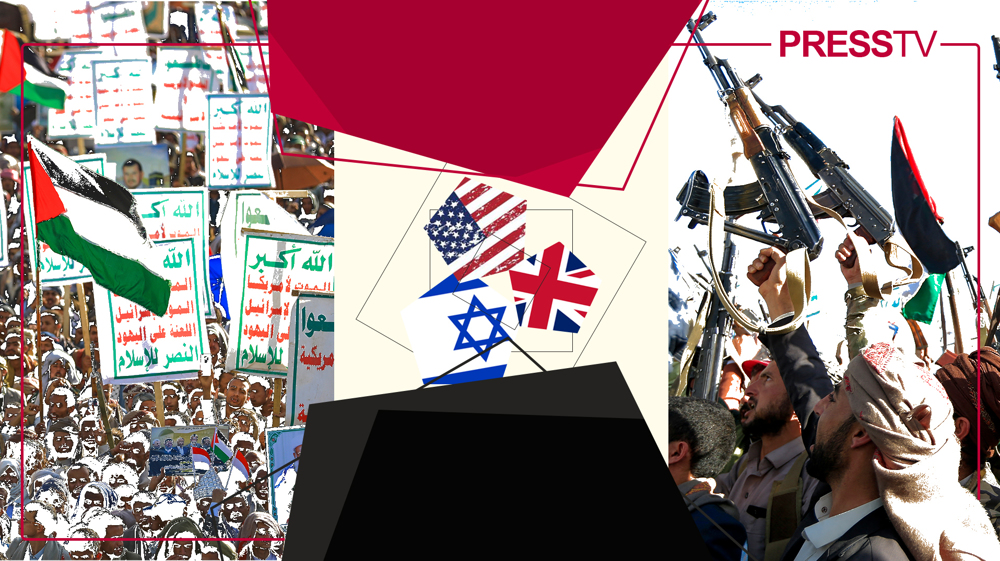
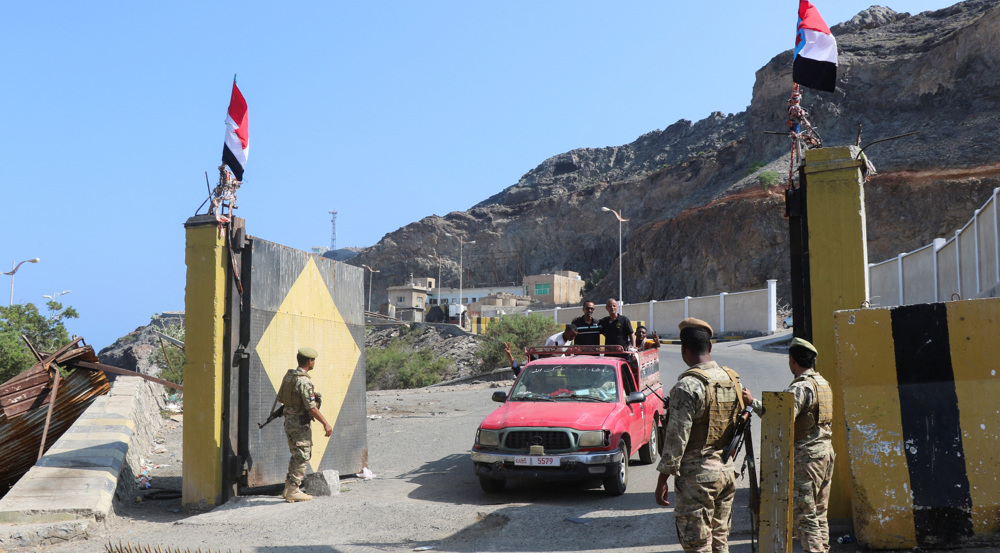
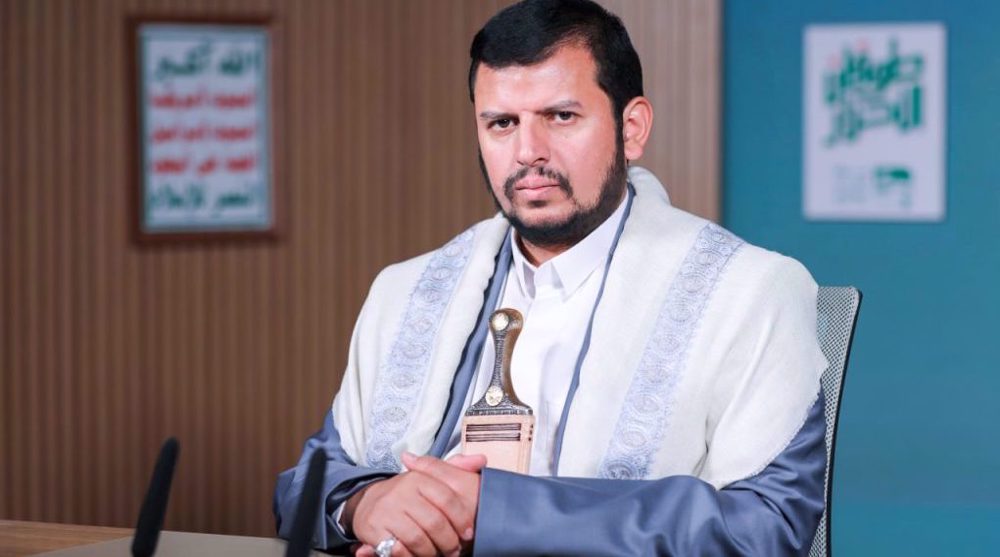
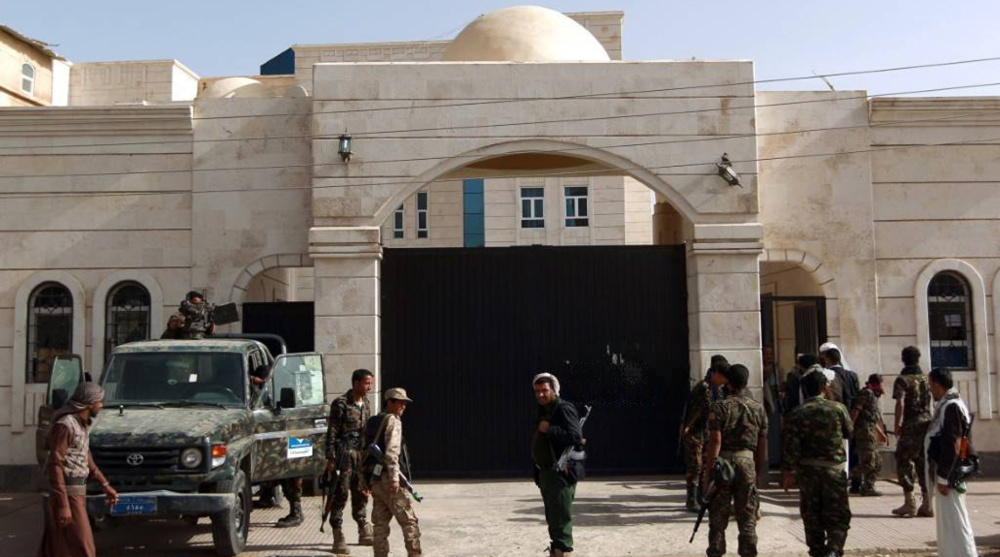



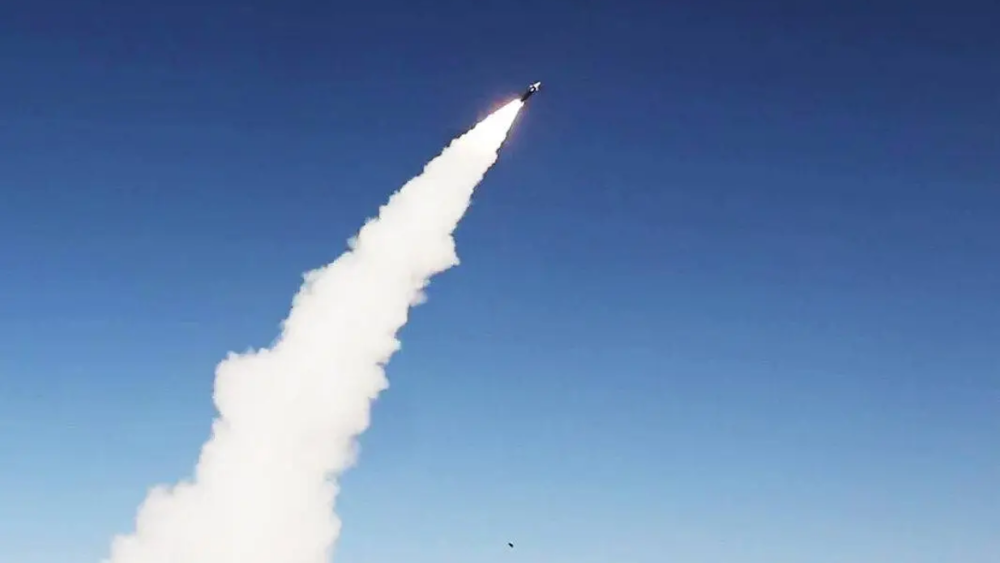
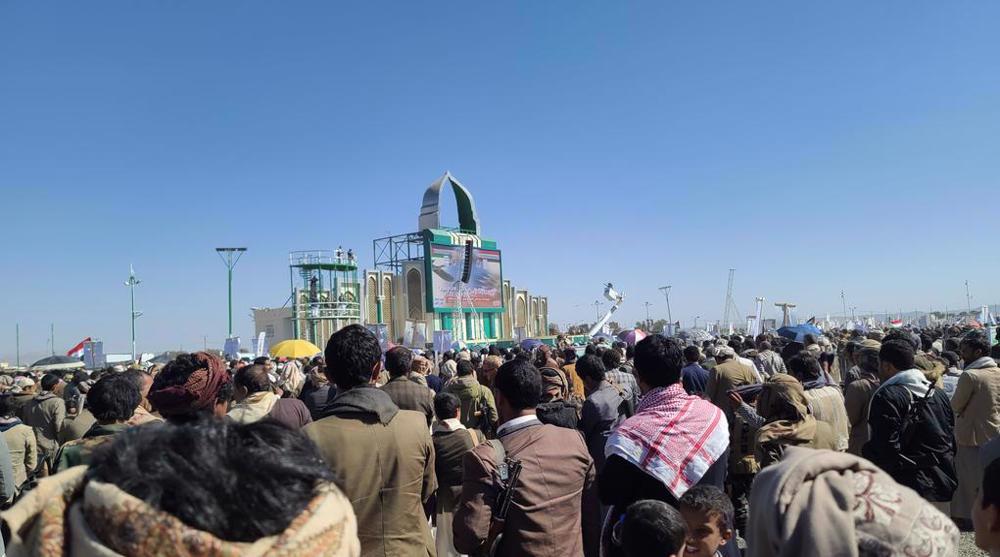
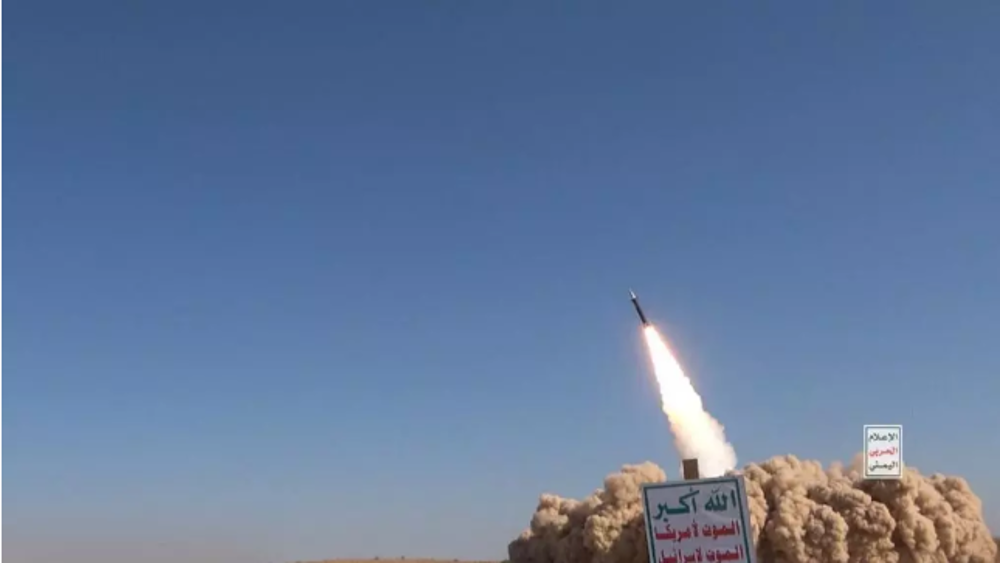
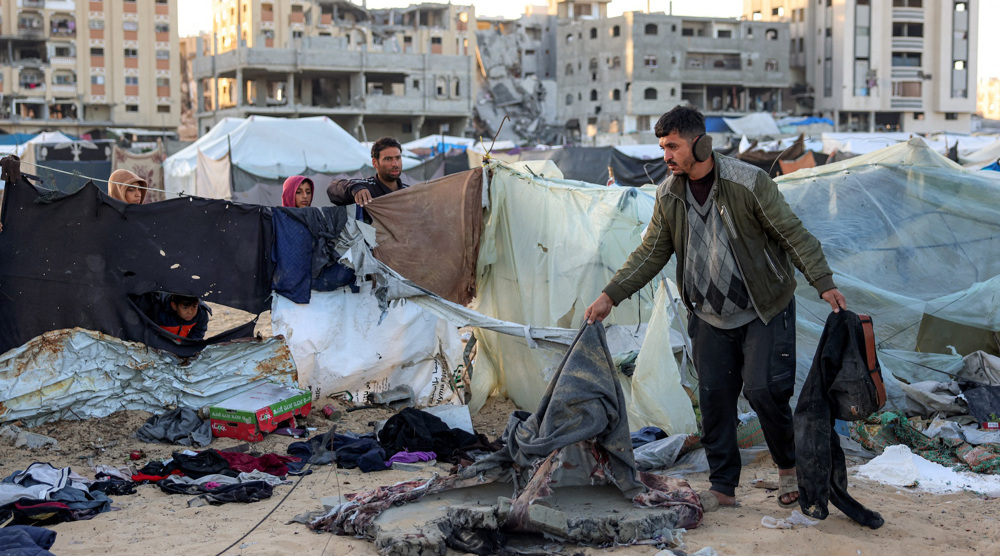
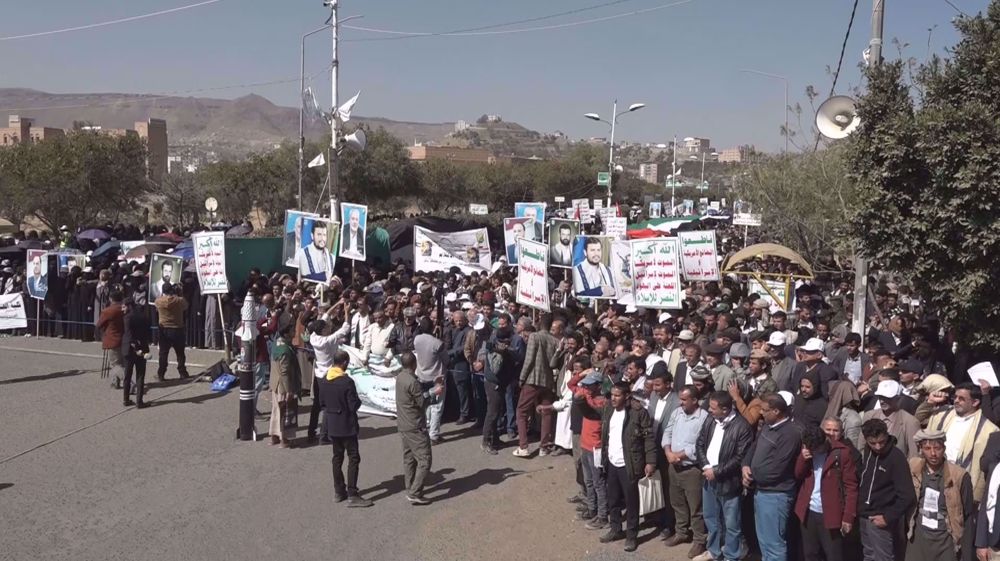

 This makes it easy to access the Press TV website
This makes it easy to access the Press TV website